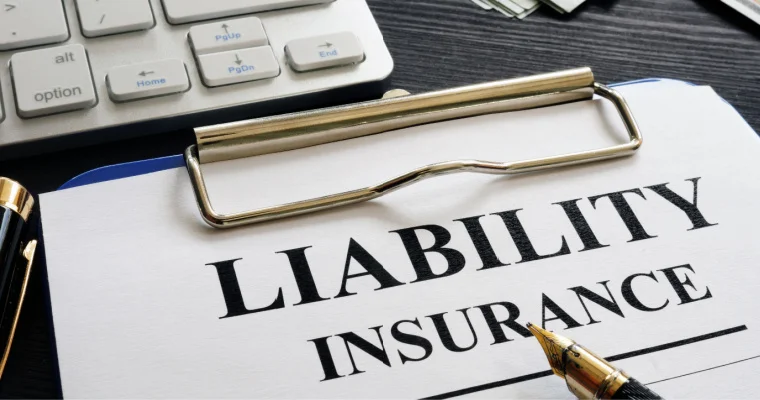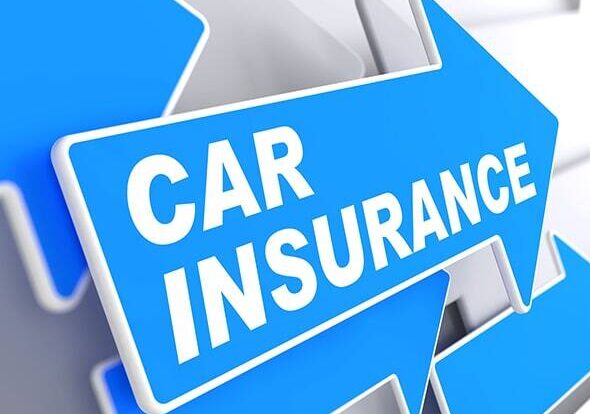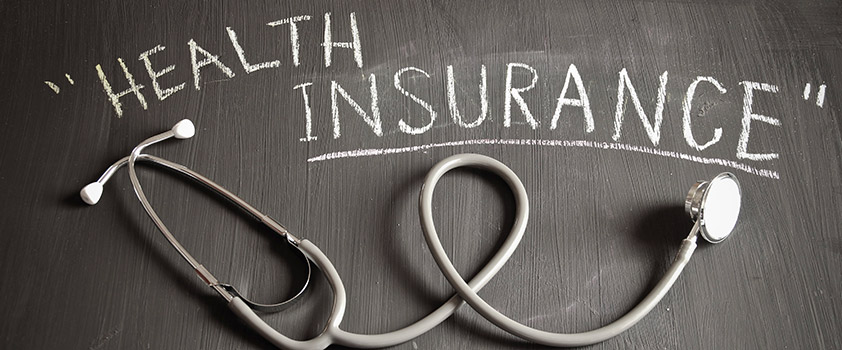Insurance
auto insurance, business insurance, car insurance, general insurance, health insurance, home insurance, insurance, insurance agent, insurance benefits, insurance broker, insurance claims, insurance company, insurance comparison, insurance coverage, insurance industry, insurance market, insurance plans, insurance policy, insurance premium, insurance quotes, insurance services, liability insurance, life insurance, medical insurance, pet insurance, renters insurance, term insurance, travel insurance, whole life insurance
Admin
What Does Liability Insurance Cover and Why Do You Need It?
In today’s world, where businesses and individuals interact in increasingly complex environments, the need for protection against unforeseen risks is more crucial than ever. Whether you’re a small business owner, a contractor, or an individual, liability insurance is a safety net that can protect you from substantial financial loss. This article explores what liability insurance covers, why it’s essential, and how it can shield you from various types of risks.
Key Takeaways
- Liability insurance covers legal fees, settlements, and damages resulting from accidents or mistakes.
- Different types of liability insurance cover specific risks, including general liability, professional liability, and product liability.
- It provides financial protection, peace of mind, and compliance with industry regulations.
- Having liability insurance can enhance your credibility and protect your business or personal assets from lawsuits.
What is Liability Insurance?

Liability insurance is a type of insurance that protects an individual or business from financial loss resulting from legal claims made against them due to negligence, accidents, or other issues. In simple terms, it covers the cost of legal defense and any settlement or judgment awarded to the claimant. Without liability insurance, you could be financially responsible for paying these costs out of your own pocket, which can be devastating for both individuals and businesses.
Liability insurance is particularly important because accidents happen unexpectedly, and a single lawsuit can wipe out years of savings or profits. Having liability insurance ensures that you’re not left to bear the entire burden of such events, providing peace of mind knowing that your financial future is protected.
Types of Liability Insurance
There are different types of liability insurance, each designed to cover specific risks. Here are the most common types:
1. General Liability Insurance
General liability insurance, also known as commercial general liability (CGL) insurance, covers a wide range of risks, including:
- Bodily Injury: If someone gets injured on your property or due to your business activities, general liability insurance will cover medical costs and legal expenses.
- Property Damage: If your business causes damage to someone else’s property, this type of liability insurance will cover the cost of repairs or replacement.
- Advertising Injury: If your advertising or marketing activities cause harm to someone’s reputation or business, general liability insurance will help cover the legal expenses.
2. Professional Liability Insurance (Errors & Omissions)
Professional liability insurance is essential for businesses and individuals who provide advice, services, or expertise. It covers legal costs if a client sues you for negligence, errors, or omissions in your work. This type of insurance is common among:
- Lawyers
- Doctors
- Architects
- Accountants
- Consultants
3. Product Liability Insurance
If your business manufactures, distributes, or sells products, product liability insurance is necessary. This coverage protects against claims of injury or damage caused by defective products. It is particularly important for businesses in the food, healthcare, or consumer goods industries.
4. Employer’s Liability Insurance
If you have employees, employer’s liability insurance is often required. This covers the cost of claims made by employees who are injured or become ill as a result of their work. It helps protect the business owner from being financially responsible for these claims.
5. Cyber Liability Insurance
As businesses increasingly rely on technology and the internet, cyber liability insurance has become more important. This insurance covers the costs associated with data breaches, hacking, and other cyber risks, protecting both the business and its customers.
What Does Liability Insurance Cover?
Liability insurance generally covers two key elements: legal costs and compensation.
1. Legal Costs
Legal defense can be expensive. If someone files a lawsuit against you, liability insurance will cover the costs of hiring a lawyer, court fees, and other legal expenses. Legal costs can quickly escalate, especially if the case goes to trial, so having insurance to cover these expenses is vital.
2. Compensation and Settlements
In the event that you are found liable for damages, liability insurance will help cover the cost of compensation to the injured party. This could include medical bills, property damage, or lost income. If a settlement is reached, liability insurance will often cover that as well, saving you from paying out-of-pocket.
Why Do You Need Liability Insurance?
Liability insurance is not just a nice-to-have; it’s essential for many reasons. Here’s why you need liability insurance:
1. Protects Against Lawsuits
Lawsuits are costly, and even if you are innocent, defending yourself in court can drain your resources. Liability insurance offers financial protection from these legal costs, which can otherwise quickly spiral out of control.
2. Peace of Mind
Knowing that you’re protected from unforeseen accidents or mistakes can provide peace of mind. You can focus on running your business or daily activities without the constant worry of a lawsuit hanging over your head.
3. Financial Protection
Legal fees, settlements, and damages can quickly add up, potentially wiping out your savings or disrupting your business. Liability insurance ensures that you don’t bear the full financial burden if something goes wrong.
4. Regulatory Requirements
In some industries, liability insurance is not just a good idea; it’s required. Certain businesses, like healthcare providers, construction companies, and manufacturers, are often legally obligated to carry liability insurance to operate.
5. Builds Credibility
Having liability insurance can increase your credibility, particularly if you run a business. Clients, customers, and vendors are more likely to trust you if they know you have the proper insurance in place to protect them in case of an accident or error.
What Are the Common Risks That Liability Insurance Covers?
Liability insurance provides coverage for a wide range of risks, including:
- Slip and Fall Accidents: If someone slips and falls on your premises, liability insurance covers the medical costs and legal expenses if they sue.
- Property Damage: If your actions or products cause damage to someone else’s property, liability insurance covers the repairs or replacement costs.
- Product Defects: If a product you manufacture or sell causes harm, product liability insurance covers the claims made against you.
- Professional Mistakes: If you make a mistake in your professional work that results in harm or financial loss to a client, professional liability insurance will cover your legal fees and any compensation owed.
- Advertising Injuries: This includes defamation, copyright infringement, or other harm caused by your advertisements.
Why Liability Insurance is Crucial for Businesses

For business owners, liability insurance is not just an option—it’s a vital component of their overall business strategy. As a business grows, so does the risk associated with its operations. There are countless scenarios in which a business could find itself facing lawsuits, and the financial implications can be devastating without adequate insurance coverage.
Here’s why liability insurance is so important for businesses:
1. Protecting Your Assets
Without liability insurance, any lawsuit or claim could threaten the very survival of your business. Imagine facing a significant lawsuit over a product defect or an injury occurring at your business premises. Without insurance, you’d be responsible for paying legal fees, compensation, and other related costs out of pocket. Liability insurance acts as a buffer between your personal assets and potential legal and financial damages, protecting your home, savings, and other personal assets from being seized.
2. Compliance with Legal Requirements
In some cases, businesses are legally required to carry liability insurance. For instance, if you have employees, most states require employer’s liability insurance to cover workplace injuries or illnesses. Additionally, certain industries, such as healthcare, construction, and legal services, often mandate liability coverage for those operating within them. Failure to meet these requirements can lead to legal penalties, fines, or even the closure of your business.
3. Coverage for Employee-Related Incidents
Employee-related incidents, like workplace injuries or disputes, are common occurrences in any business. Liability insurance, specifically employer’s liability insurance, helps businesses cover the costs associated with employees’ injuries or illnesses that occur while on the job. Without this coverage, employers may be required to cover medical bills, rehabilitation costs, and compensation out of pocket, putting their financial stability at risk.
4. Defense Against Lawsuits from Customers and Clients
Whether you’re a service provider or product manufacturer, liability insurance is crucial for covering the costs associated with lawsuits from customers or clients. If a customer is injured using your product or service, or if they allege negligence in the service you provided, liability insurance can cover the legal fees, court costs, and compensation for damages. Professional liability insurance, for example, is essential for businesses like law firms, consulting agencies, or healthcare providers who offer advice or services.
5. Maintaining Business Reputation
A well-insured business is often seen as more responsible and trustworthy by clients, customers, and partners. When you carry liability insurance, it shows that you’re prepared for unforeseen incidents and that you care about protecting your clients and their interests. Having this coverage can help preserve your reputation, as clients may prefer to do business with an insured company, knowing they have financial security in case of an incident.
6. Peace of Mind for Business Owners
Running a business involves a lot of stress, and dealing with lawsuits or claims can add unnecessary pressure. Having liability insurance provides peace of mind, knowing that you are covered in case things go wrong. It allows you to focus on growing and running your business instead of worrying about the potential financial consequences of a lawsuit or other incidents.
How Liability Insurance Affects Your Premiums and Deductibles
When purchasing liability insurance, it’s important to understand how premiums and deductibles work, as they directly impact how much you’ll pay for coverage. Your premiums are the regular payments you make to maintain your insurance policy, while deductibles are the amounts you must pay out of pocket before your insurance kicks in.
Several factors determine how much your premiums and deductibles will be:
1. Business Size and Risk Level
The larger the business and the higher the associated risks, the higher your premiums are likely to be. For example, a construction company that deals with heavy machinery and large projects may have higher premiums than a consulting firm with minimal physical risk.
2. Claims History
If your business has a history of frequent claims, your premiums will likely be higher. Insurance companies view past claims as a sign of increased risk, which often results in higher premiums to offset potential future claims.
3. Coverage Limits
The coverage limits you select for your liability insurance policy also affect your premiums. Higher coverage limits mean higher premiums, but they also provide more extensive protection. You should balance the level of coverage you need with your ability to pay for it.
4. Location
The location of your business can affect your premiums, as certain areas may have higher risks (e.g., areas prone to natural disasters or high crime rates). Businesses located in such areas may face higher premiums due to the increased risk of loss.
5. Deductibles
Choosing a higher deductible can lower your premium, but it also means you’ll have to pay more out of pocket before your insurance coverage takes effect. On the other hand, opting for a lower deductible will result in higher premiums, but it reduces the amount you must pay in the event of a claim.
What Happens If You Don’t Have Liability Insurance?
While having liability insurance is essential for many individuals and businesses, not everyone carries the coverage they need. The consequences of not having liability insurance can be severe.
1. Financial Losses
Without liability insurance, you could be forced to pay for legal defense costs, settlements, or judgments on your own. This can be incredibly costly, especially in the case of a serious lawsuit. Legal fees alone can range from thousands to millions of dollars, depending on the complexity of the case.
2. Damage to Reputation
If a lawsuit results in a significant financial loss and you don’t have insurance to cover it, your business or personal reputation could suffer. Clients, customers, or the public may lose trust in your ability to manage risks and handle financial obligations. This could result in a loss of business and damage to your reputation that is difficult to repair.
3. Personal Asset Risk
In the absence of liability insurance, your personal assets—such as your home, savings, and investments—could be at risk if a lawsuit results in a judgment against you. For businesses, this is particularly dangerous, as it could result in the closure of your business, and for individuals, it could lead to bankruptcy.
4. Legal Penalties
For businesses in industries where liability insurance is mandatory, failing to carry the required insurance could result in legal penalties, fines, and potential suspension of your business operations. Even if insurance isn’t required by law, not having it may make it difficult to secure contracts or do business with clients who expect proof of insurance.
How to Choose the Right Liability Insurance for You or Your Business
When deciding on the right liability insurance for your needs, several factors must be taken into consideration to ensure you’re adequately protected:
1. Assess Your Risk
The first step in choosing the right liability insurance is to assess the risks associated with your business or personal activities. If you’re a contractor, your risks might be different from a restaurant owner or a freelancer. Understanding your risks will help you select the appropriate type of insurance coverage.
2. Consult with an Insurance Broker
An experienced insurance broker can help you understand the different types of liability insurance available and recommend policies based on your needs. They can help you find the best coverage at a competitive price, ensuring you’re not underinsured or overpaying for unnecessary coverage.
3. Review Your Policy Regularly
Why You Should Review Your Insurance Policy Regularly:
- Life Changes: Marriage, having a child, buying a home, or starting a business can all impact your coverage needs.
- Coverage Gaps: Over time, your existing policy might not cover new risks or assets.
- Policy Updates: Insurers occasionally update terms and conditions, which may affect your coverage or premium.
- Premium Changes: You might be eligible for discounts, or your rates may have increased unnecessarily.
- Better Options: New insurance products or better deals may have become available since you last checked.
- Avoid Surprises During Claims: Ensures you’re clear on what’s covered, reducing the risk of denied claims.
- Compliance: Business or professional policies need updates to meet current legal or regulatory requirements.
When to Review Your Policy:
- Annually (at a minimum)
- After major life events (marriage, divorce, new job, home purchase, etc.)
- When renewing your policy
- After buying/selling a vehicle or property
- If your financial situation changes significantly
4. Understand Your Deductibles and Coverage Limits
Make sure you understand the deductibles and coverage limits in your liability insurance policy. Higher limits offer more protection, but they come at a higher premium. You need to strike a balance that ensures you’re adequately covered without overextending yourself financially.
Also Read :- What Does Travel Insurance Typically Cover?
Conclusion
Liability insurance is a vital part of any individual’s or business’s risk management strategy. It provides protection against a wide range of risks, from legal defense costs to compensation for damages. Whether you’re a business owner or a professional, having liability insurance ensures that you can focus on your work and personal life without the looming fear of a lawsuit draining your resources.
FAQs
1. What is the difference between general liability and professional liability insurance?
General liability insurance covers third-party bodily injury, property damage, and advertising injuries. Professional liability insurance, on the other hand, protects against claims arising from professional mistakes, errors, or negligence in the services you provide.
2. Is liability insurance mandatory?
Liability insurance is not always legally required, but certain industries or types of work may mandate it, especially if you have employees or interact with the public. Always check local laws and regulations to ensure compliance.
3. Can I add additional coverage to my liability insurance?
Yes, many insurance providers offer customizable policies. You can add specific coverage types based on your needs, such as cyber liability, employer’s liability, or product liability insurance.
4. Does liability insurance cover legal costs in criminal cases?
Liability insurance typically does not cover criminal defense costs, as it only applies to civil lawsuits. Criminal charges require separate legal defense coverage.
5. Does liability insurance cover intentional damage?
No, liability insurance does not cover damages caused intentionally. It only applies to accidental or negligent actions.
6. How much liability insurance do I need?
The amount of coverage you need depends on your industry, the size of your business, and the risks involved. A qualified insurance agent can help determine the right level of coverage for your situation.
7. Can liability insurance protect me from all lawsuits?
Liability insurance can protect you from most lawsuits related to accidents, negligence, and professional errors. However, it may not cover lawsuits related to fraud, intentional acts, or criminal activity.













